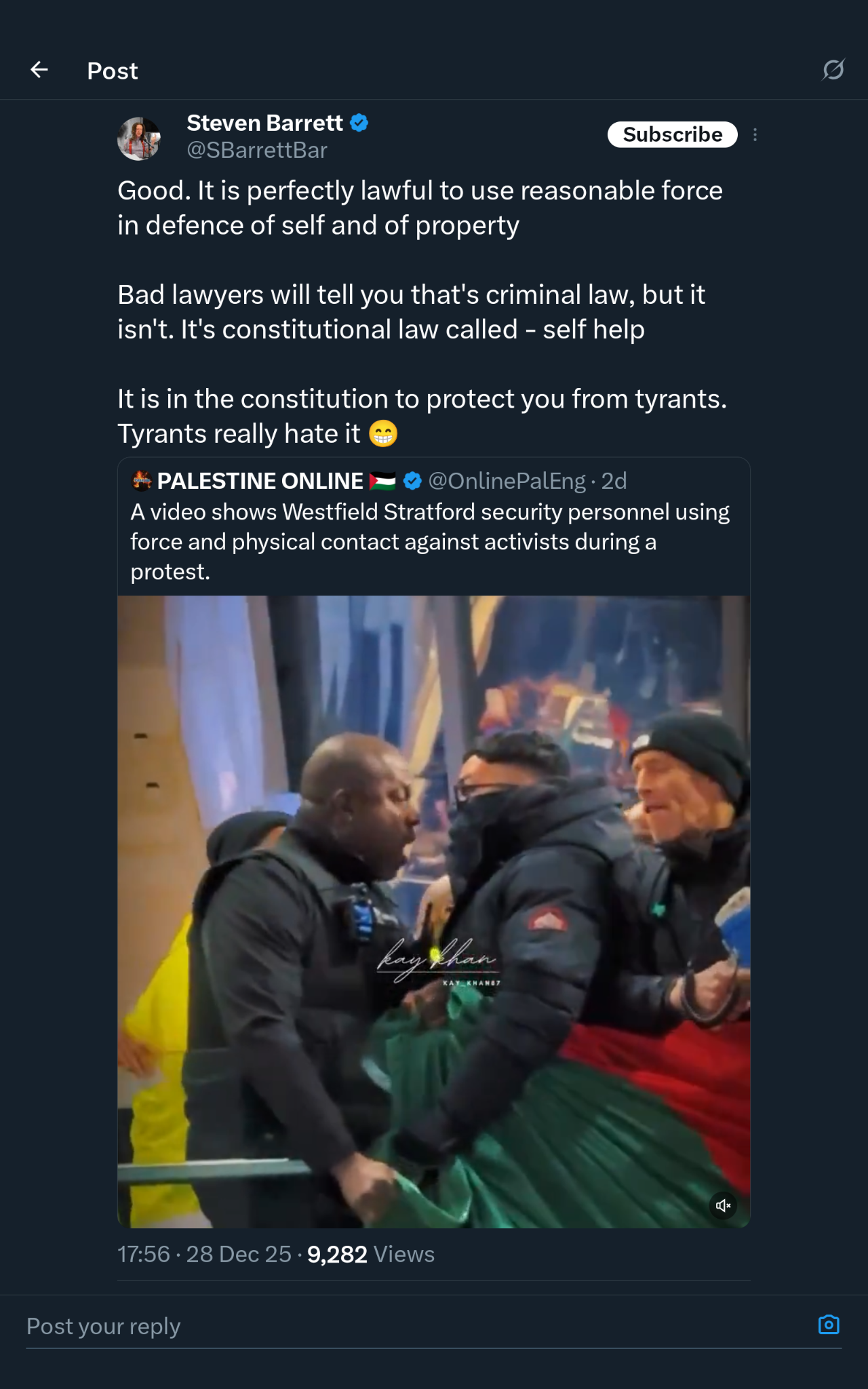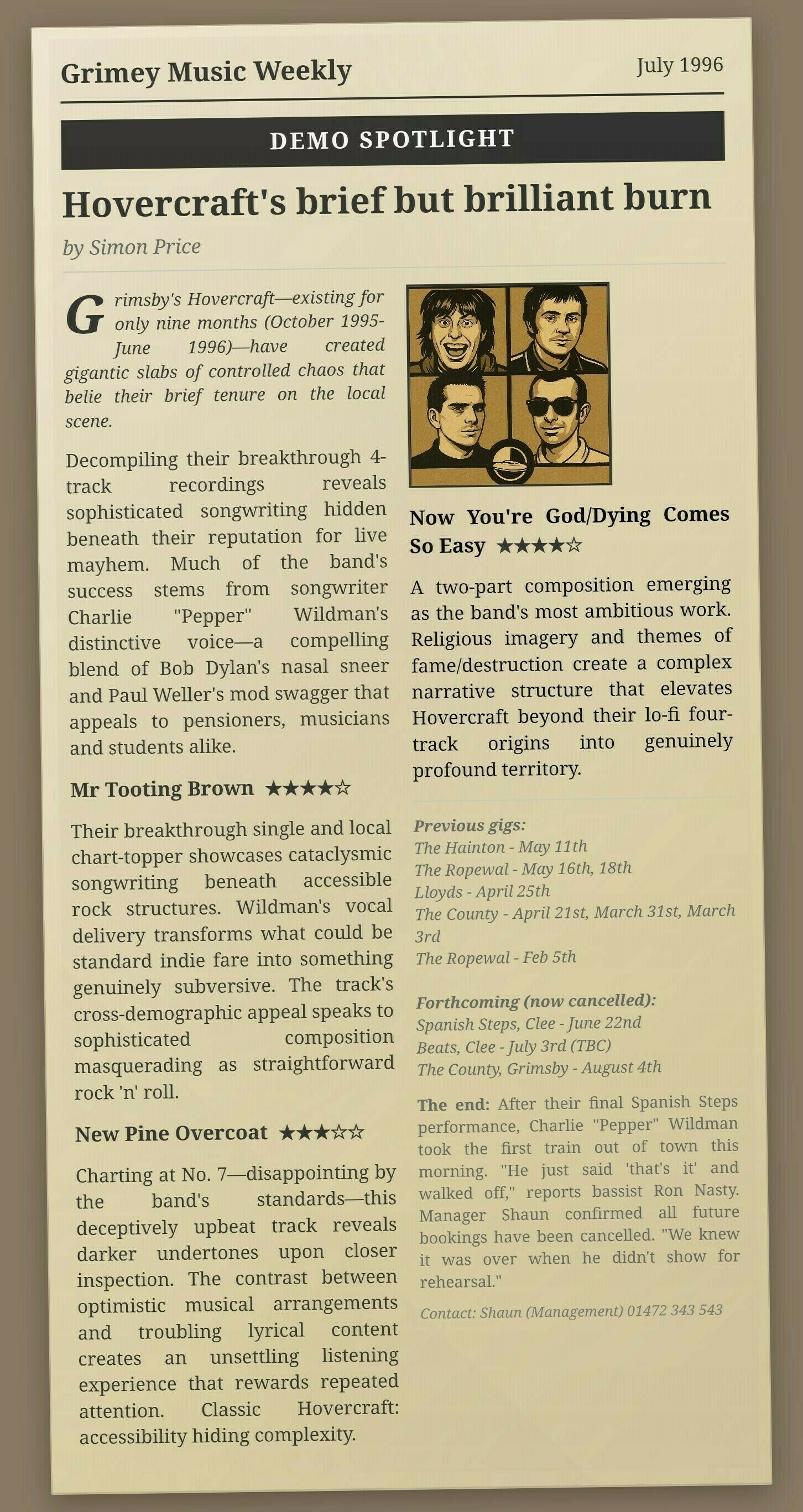Category: Longform
You are viewing all posts from this category, beginning with the most recent.
Custard Woman vs The Dark Lord
If you think America has it bad with a rapist paedophile president hell-bent on fascisting his way out of the international blackmail trap he happily stumbled into with his pants around his ankles… wait ‘til you hear about the UK’s current predicament.
Our rapist paedophile ex-prince aside, and the King’s late rapist paedophile man-of-the-people “jingle jangle” advisor aside, we find ourselves with a prime minister who thinks it’s ok to have a key political advisor who is best friends with a rapist paedophile.
Kiddie-fuckers are bad, but not so bad that you can’t stay in touch and even stay in their mansion while they’re in prison for fucking children.
Of course, its not even the kiddie-fucking that’s the problem. The problem is that the kiddie-fucker looks like he was a foreign asset or a spy. And the key political advisor passed on highly privileged sensitive information to this foreign asset.
Fuck the children! This is about national security and the national interest!
But remember, for all his faults, the key political advisor isn’t a paedophile, as far as we know.
Three strikes and we’ll chop off your broadband.
He does, however, have a history of fucking our children’s (and other poor people’s children’s) futures. He wanted to reduce aid to developing countries as long ago as 2005. And he wanted to expand Heathrow. And he wanted to cut off the internet for seven million Brits found to have downloaded copyrighted material.

Enter Custard Woman. Custard Woman bravely made some vegan custard (unusually smooth, according to her mum), dyed it green to match the green slime she imagined coursing through his’s veins, and promptly accosted him with it, throwing it right into his creepy, frightening-looking face.

To Mandelson’s credit, he brushed it off and carried on with his day. He reappeared five minutes later, custard-free, and claimed the custard was organic and non-toxic. If anything, he looked positively glowing and revitalised - as if he’d just received a hydrating facial massage and a blood/slime transfusion simultaneously. At no time did he complain of being assaulted, or of violent left-wing fascists, unlike modern-day far-right snowflake warriors. Although he did whine about a minor skin irritation on his face. Fuck him!

What brought all this on? Well I was going through my email archive to make sure I wasn’t inadvertently connected to Mandelson, Epstein, Savile or any other kiddie-fuckers or their friends. I a spirit of openness and transparency, this was all I found.
This, and a couple of messages from my fellow not a podcasters. One saying how creepy and frightening Mandelson’s facial mannerisms are. The other saying he is “worse than a bronchoscopy”.

Chilli On The Rocks
Made my usual chilli on Thursday. I must have been a bit distracted because I heated the pan up on a medium-high heat rather that the usual medium, making it too hot for the olive oil. Then I literally dropped the garlic powder jar into the pan (don’t tell the wife!). I got the jar out and thought, wow, that’s a LOT of garlic powder! I did think about scooping it out, but it was already burning and I needed to get the onions and cumin in the pan. I should have started over, but didn’t have enough oil left. Going against all LESS IS MORE principles I figured I could correct for the burnt garlic overdose by simply ADDING MORE STUFF. So I added more cumin, more turmeric, more sweet smoked paprika, more oregano, more jalapeños. It smelled and tasted pretty bad. I added vinegar and Kefir yoghurt, which made it look and taste more like a curry. There was tons of it.
The wife came home and had some for her dinner. She asked what it was (never a good sign). I explained that I added yoghurt to calm it down a bit. She ate it and said it was much better than my usual chilli.
I had some yesterday, and while it was edible, it was obviously (to me) totally overpowered by garlic. I don’t fancy any more of it if I’m honest.
Big Kid and the Umbrella
Big kid had lots of big ideas.
He wanted a big house so all his friends and family could stay and play together.
He wanted a big school so everyone could learn everything they needed to know.
He wanted a big hospital so that everyone could get the help they needed when they needed it.
But most of all, he wanted a big umbrella. In particular, he wanted his granny’s umbrella that she was going to throw away. The umbrella was very old, like an antique. In fact, it was Grandad’s old umbrella. Grandad had sadly died when big kid was a baby. He had cancer. Even though it was very old, and very dusty, big kid really wanted this umbrella. It was a shame to throw it away. And at school they had learned all about reusing old things and not sending them to landfill sites that poison the earth. And it was part of his family’s heritage. And, oh my god, it was BIG! It was a golf umbrella. Not that Grandad played any golf. But he did go on lots of walks in the rain to fetch things for Granny and get him out from under her feet. And now big kid could walk to school and back in the rain without needing to wear a big bulky coat that he would have to carry around with him all day. It would be perfect!
Big kid pleaded with Granny and his mum and dad, and eventually got his way (mum didn’t want “more junk in the house”, so the umbrella lives outside in the communal stairway). Granny is very pleased, and dad gets to use the umbrella, too, sometimes, when he collects little kid in the rain. It’s much better than those silly little umbrellas that snap and collapse in the wind and barely keep your shoulders dry.
Big kid is now very popular at school when it rains at home time. He’s always late home as he provides a sheltered taxi service home to all his friends. They all huddle together under his big umbrella and they walk each other home until he’s the last one and he walks home with his big umbrella all to himself.
Here’s where the story ends.
But in a parallel universe, big kid’s big umbrella becomes a source of envy. Bigger kids want it, and one big kid in particular has no problem taking it. He moves in, full of superficial charm, “Hey kid, nice umbrella! Wow, that’s such a big umbrella, kid. It would be perfect to keep me and my friends dry when it rains. Here, have some Haribos. They’re Tangtastic, your favourites. Let’s walk home together with my friends.”
Bigger kid has lots of stories to tell about how much better he is than everyone else, and, in particular, how much worse everyone else is, and why. “But me and you, we’re the same. We have my Haribos and my big umbrella. We’re a team!”
Big kid doesn’t really know what’s happening but he goes along with it because he doesn’t really have any choice. Bigger kid could just take his umbrella and leave him in the rain to get wet. Bigger kid could take away his Haribos. Big kid’s friends no longer talk to him, but that’s ok because they all soaking wet anyway, and bigger kid’s friends are all kind of bigger and drier. Although they do eat all of big kid’s Haribos. And big kid is no longer big kid. He’s little kid.
Soon, little kid’s big umbrella gets damaged and there’s a hole in it. The bigger kids were messing around with it pretending it was a sword. They stabbed a tree with it. Now not everyone is keeping dry in the rain and some people are getting very wet. Arguments start. Little kid’s umbrella is no longer a source of unity and pride among friends. It’s become a source of conflict and suspicion.
“Some kids are making us wet and need to be kicked out!” they shouted.
“That little kid is making us wet!” said bigger kid. “Kick him out!”
Now little kid has stopped having ideas. They’re dangerous. Bad. Crazy. Like him.
Things could have got better. Or worse.
Little kid’s dad noticed he wasn’t himself and he told his dad everything that happened. Dad spoke to the teachers at school. The grown-ups had some meetings.
Bigger kid told a pack of lies. He said little kid gave him the umbrella. He said little kid stole it from him. He said little kid broke it to stop bigger kid using it. Bigger kid said little kid was stealing his Haribos and selling them to bigger kid’s friends. Bigger kid took the umbrella back to protect it from little kid so that everyone could use it.
Bigger kid’s dad brought bigger kid round and made him say sorry.
Next time bigger kid saw little kid he punched him in the face.
I am bleeding
“AND I WOULD HAVE GOTTEN AWAY WITH IT, TOO, IF IT WEREN’T FOR YOU PATHETIC, SINISTER, CHILDISH, MORONIC TYRANT CLOWNS!!1!”



Unsafe discharge and death by licorice
Mum moved downstairs two months ago. It hasn’t been easy. The previous occupiers, our neighbours, left the house a filthy mess. Me and my brother got the kitchen and bathroom cleaned on moving in day, but it was far from ideal. Another neighbour who I know from work/church repainted her walls and ceilings. A neighbour my wife knows weeded the garden and did some cleaning and washing. Little kid posts the dog jumpers and cat tea cosies she knits to keep her eBay customers happy. Big kid sweeps and mops the floor for manga money. Sainsbury’s deliver a crateful of cat food, fizzy drinks, snacks, and black licorice. The licorice keeps her “moving”. I make her a cooked meal every evening, empty the bins, and keep moving furniture around as and when requested. “When I get the place sorted I’ll be fine” is my mum’s mantra. Mine is more “you need to get your health sorted” and “tell your doctor”.
Mum looks set to move at the very start of next month. Moving house is the most stressful life event, and doing so when you’re 80, unwell, and from the home you bought expecting it to be your final home in the town where you went to school is harder. She’s handled it pretty well, to be fair, although the anxiety has kicked in the closer we got to the desired completion date. It’s not been easy for me, either, as there’s a limit to what I can do from a distance. It’s mostly “ask your solicitor” or “tell your solicitor” and trying to reassure her that everything will be all right in the end.
The first week she moved in, she banged her leg during the night causing a pretty horrible haematoma, which required a couple of trips to the hospital, the GP surgery and ongoing home visits from the district nurse. Yesterday morning I was on my third spoon of cornflakes before the school run when I received a text from mum saying she’d had a fall and was on the floor. Her other leg (not the one she banged before) gave way as she got out of bed and she toppled over on to her side. Remarkably, she didn’t break anything and had got herself sitting upright again, but obviously couldn’t get herself up. I couldn’t get her up either, which is probably just as well, as the medical advice is not to move them. My wife stayed with her while I took little kid to school. Paramedics duly arrived and very carefully assessed and treated her and recommended a trip to Accident and Emergency (A&E) due to her elevated heart rate and medical history. She did not want to go, but the alternative was to wait for a home visit from the GP in the afternoon and s/he would certainly call an ambulance.
After a day in A&E, and after I left her to pick up little kid, she was told she would be discharged that evening. They’d booked hospital transport to take her home, but I drove to collect her as it might have been a long wait. When I got there, she couldn’t get out of her chair into her wheelchair without the assistance of two carers. I wondered if she’d be able to get into and out of my car. And into and out of her bed. Without falling down again. There was general agreement that it was certainly a suboptimal arrangement. My wife, who is a social worker and deals with similar scenarios in her work, advised me that what the hospital was proposing is known as an unsafe discharge.
As soon as I uttered this magic phrase, mum was readmitted to A&E so that she could be discharged safely. She was not happy about that or with me, I have to say. And I can quite understand. Everyone just wants to go home and sleep peacefully, comfortably and privately in their own bed. Today she’s been reassessed. She now has a six-week care package in place for when she goes home so that she can regain her independence without putting herself at risk of another fall. They’ve done more scans and found new problems.
And, seriously, it now turns out that her long-standing licorice habit might be the single cause of some of her most debilitating problems.
Where You Been?
Everyone has been asking, so here’s the deal. Unless you count Butlins in a wet and windy Skegness (and I do), I haven’t been anywhere.
Nowhere that doesn’t have at least a flaky internet connection, or a sleeping family.
While I suppose I have been ill with what turned into an acute exacerbation of my chronic lung disease, that makes it sound worse than it was. I was still here, just under the weather.
Everyday activities became more difficult. Breathing became more difficult. But it’s carry on, or what? Throw in a few anti-sleeping pills and sleeping became more difficult. Concentrating became more difficult. For my sins, I did take a few weeks off work. But I did have a lot of free time on my hands.
As regular readers will know, I recently began excavating my old band Hovercraft from the analog archives of cassette tapes stored in cardboard boxes for thirty years. Why? Well, it’s not the first time, and it sure won’t be the last. It’s something I do periodically. Hovercraft were easily the best band I ever played in, and our life was cut short after an exhilarating nine months. I didn’t know why at the time, and I don’t know why now, but of course I have blamed myself aplenty. As well as Sir Gareth Southgate.
What better way to put all of that self-recrimination behind me than to reinvigorate the band, bring them back to life and tell the world how great we were-and still are?
With my old friend and bass player Aaron (aka Ron Nasty), I resurrected Hovercraft’s songs, created a website (hosted here on micro.blog), and began the boring, expensive, hard work of promoting our songs and searching for our lost singer/songwriter Charlie Pepper. We have a couple of big, exciting album releases planned before Xmas, and more than anything else this project has reinvigorated me, in between coughs and wheezes, and kept me going into the wee hours mixing, mastering and co-producing the whole package.
Another personal project I have been working on is a reorganisation of my website here, and more significantly, thinking about my “social” output and writing. I haven’t been very social recently, and I seem to be less interested or good at it as I get older. Plus, my time has been invested elsewhere. Anyway, I will keep at it, and will streamline my actual, proper writing so it all makes a bit more sense. I started by curating all my diatribes on local democracy and community activism and creating Southall Stories (also hosted here on micro.blog).
Yes, I am an investigative journalist! (According to Claude.)
Hopefully it will be a useful resource for anyone who is interested in all the political shenanigans in Ealing. Another archive restored!
Another personal project, and one I rarely talk about publicly, is my management of a one hundred strong online soccer management gaming community. This summer we celebrated ten years together - no mean feat at all. That’s kept me busy, too, and while the old website isn’t new (or hosted on micro.blog), it did get a makeover and some improvements, and another new website (hosted here on micro.blog) and community, and another archival project (created by Claude and ChatGPT with me as their copy and paste coding monkey like I was a teenager all over again).
Yes, I am a web developer! And an archivist! And a community manager! And (thanks to our AI overlords) yes, I am a coding monkey!
On the work front, which I haven’t forgotten about, before my recent illness, I developed a £1m+ funding application for a cross-borough youth project that will transform young people’s lives in two of the most-deprived areas in west London - and, we hope, support them to become our community leaders of the future. All very exciting, and not a little stressful - a lot depends on it being accepted and successful. I hope we find out soon if we get the grant.
Yes, I am a project development and sustainability lead! On an administrator’s salary!
On the home front, my kids are transitioning from Reception to Year one (so far so good, loss of afternoon playtime is the main complaint) and from Primary to Secondary (so far so good, all the other kids being so much taller is the main complaint).
Mum looks set to move at the very start of next month. Moving house is the most stressful life event, and doing so when you’re 80, unwell, and from the home you bought expecting it to be your final home in the town where you went to school is harder. She’s handled it pretty well, to be fair, although the anxiety has kicked in the closer we got to the desired completion date. It’s not been easy for me, either, as there’s a limit to what I can do from a distance. It’s mostly “ask your solicitor” or “tell your solicitor” and trying to reassure her that everything will be all right in the end.
Lastly, and least (and this has turned into a half-time team talk), I helped raise over £600 for my son’s school PTA. So not a bad half year’s work at all.
I might not have “been” anywhere, but I’ve been here, now. Breathing (sometimes with difficulty), creating, preserving, caring for others. Breathing new life into old. That’s not “nowhere” - that’s everything.
Mental Colonisation
The mind colonised by imperialism loses the ability to recognise atrocities when committed by the “correct” side.
Post-war Germany provides a clear example. After 1945, a defeated imperial power was restructured by Allied occupation forces who retained many Nazi officials while absorbing others into Western institutions. The Marshall Plan rebuilt infrastructure, but the deeper project was ideological reconstruction - replacing one form of authoritarian thinking with another that served new imperial masters.
This mental colonisation operates through historical trauma weaponised for present purposes. German guilt about the Holocaust becomes justification for supporting Israeli atrocities. “Never again” transforms from universal principle to selective protection, enabling the very crimes it was meant to prevent.
The colonised mind cannot process moral consistency. Someone who once offered complex geopolitical analysis reduces their thinking to partisan cheerleading. Resistance to occupation becomes “terrorism” when committed by the wrong people. Documented war crimes become “self-defense” when perpetrated by the right flag.
Most tragically, this mental colonisation makes Jewish communities less safe globally. When a state claiming to represent all Jews commits documented genocide while using Jewish identity as a shield against criticism, it creates backlash against Jewish people worldwide who had no role in these decisions.
The imperial project continues under new management. Whether we call it World War Three or an extended World War Two becomes academic when viewing the unbroken chain of interventions since 1945, each justified by the previous one’s consequences.
Mental decolonisation requires recognizing that principles apply universally, not selectively based on geopolitical convenience.
From Antisemite to Anti-American
When confronted with documented evidence of war crimes, defenders of atrocities cycle through predictable stages before settling on a final (final?) position: reframing opposition to genocide as “anti-Americanism.”
This evolution is telling. First came the antisemitism accusation - the nuclear option deployed when hospital bombings and destroyed aid trucks became indefensible. But when that weaponisation of historical trauma failed to silence criticism, the charge quietly disappeared, replaced by a more sophisticated imperial framework.
Now the same critic who was supposedly driven by “rabid anti-Semitism” gets recast as an anti-American contrarian. The accusations shift, but the goal remains constant: delegitimise opposition to documented atrocities through character assassination rather than evidence.
The “anti-American” framing is particularly absurd given the intertwined nature of Anglo-American imperialism. British special forces operate in Ukraine alongside extensive arms sales and military coordination with Israel. When Boris Johnson can veto Ukrainian peace negotiations and the UK maintains outsized influence in international organisations despite its declining economic power, we’re seeing coordinated imperial projects rather than American unilateralism.
The “special relationship” allows Britain to punch above its weight strategically while America provides the military muscle. Royal Marines in “high-risk operations” in Ukraine, deep military oversight of Gaza operations, and the historical legacy of the Balfour Declaration all point to British imperial continuity operating through American power.
Critics who oppose both British and American imperial interventions get labeled “anti-American” because the imperial mindset cannot process consistent opposition to coordinated oppression. It must choose sides in great power competition rather than opposing the system of domination itself.
The accusations will keep shifting - antisemitic, anti-American, whatever works - because the goal was never sincere concern about prejudice, but silencing criticism of documented atrocities.
Why complain?
Two years into Gaza’s destruction, you can trace the evolution of genocide denial in real time:
Phase 1: “It’s not happening” - Israel is only targeting Hamas, civilian casualties are minimal, reports are exaggerated.
Phase 2: “It’s justified” - Palestinians brought this on themselves, Hamas (“ISIS” - seriously?!) uses human shields, Israel has the right to defend itself.
Phase 3: “It’s normal” - War is ugly, these things happen, other conflicts are worse, why complain about hospital bombings when other wars exist?
Phase 4: “Why do you care?” - The mask fully drops. Not defending the actions anymore, just questioning why anyone should object to war crimes at all.
Each phase abandons the previous justification while moving the moral goalposts further into the abyss. By the end, you’re not debating policy or tactics - you’re facing someone who has reasoned themselves out of basic human empathy.
The weaponised whataboutism reveals the imperial logic - both Ukraine and Israel are Western client states whose “sovereignty” depends on US backing. When a UK prime minister can fly to Kyiv in order to veto peace negotiations, and US aid determines Israeli military capacity, these aren’t independent nations making sovereign choices.
Some of this stems from historical guilt transformed into moral blindness - where “never again” becomes “never again to Jews” rather than “never again to anyone,” providing cover for Western imperial projects wrapped in humanitarian language.
The most chilling part isn’t the denial itself. It’s watching someone systematically dismantle their own moral framework, piece by piece, to avoid confronting what they’re supporting.
Digging the Lost Tapes Restoration of Grimsby's No. 1 Band in 1996
Hovercraft (UK) were a real live band, briefly, in 1995-96.

We hovered in, made a lot of noise, broke down and sank without a trace, all in the space of nine months.

We were number one in the first, and possibly only, South Bank Demo Charts in the Grimsby Evening Telegraph.
There’s no chance of a reunion. That will be a relief to many. Our drummer emigrated to Australia. Our singer-songwriter-lead guitarist is MIA, last seen in India (or Boscombe). Our bass player plays in a semi-professional covers band. And our guitarist/tech guy is me.

Every few years I get out the digitised versions of all our old demo and home recording tapes and remix and (re)master them with the he latest free tools available. In the early days, that was Audacity. More recently, it’s Soundcloud’s and Bandlab’s (free) online mastering tools.
The goal is always the same. To transform the lofi, degraded analog recordings preserved on mangled old cassette tapes that were digitised using the cheapest USB analog to digital converter tape deck available twelve or fifteen years ago into something resembling what we actually sounded like in our rehearsal room, the studio, the pub, and - most importantly - in our own imaginations. (If you’re interested in learning more about mastering and how Bandlab mastering works there’s a couple of good articles here.)

Last October I went down the same old nostalgia rabbit-hole. Every time I think I’ve made the tracks sound better with the latest software, which usually means adding reverb or preset effects (which are likely a mixture of reverb and compression). The end result is something which sounds a bit louder, more atmospheric and less rough around the edges. Although all the reverb and compression can also make for a lot of additional noise, when noise is an integral part of the original sound AND the degradation of the original sound that was digitised.

Anyway, it’s all a bit of fun and allows for reconnecting with Ron Nasty, our old bass man (now known as Ronnie Nice). Ronnie and me had a lot of fun writing the band’s not entirely factual or unelaborated back story. Putting that into Claude.ai produced more amusing results, as did giving it some of the lyrics to the songs. These AIs can make pretty good music critics if you tell them that’s what they are, even if they’ve never heard a note. Claude is now like the fifth Beatle.

And that was what got me thinking… Can AI listen to music? That’s how I discovered Suno Music, Microsoft’s online AI music creation beast. And it is a beast. (Other beasts are available.) Me and Ron started off simply pasting in lyrics to the songs Ron had lovingly transcribed by listening to the old songs over and over again (only the other day I realised I had some of the original lyric sheets, but don’t tell Ron). Click on

That was back in March. The originals, if you wanna listen.
Then I realised you could (then) upload and use two minutes of original audio. Not quite a recreation or restoration of the original songs, but getting close. We also enjoyed doing an album of Hovercraft songs as if covered by a female singer in a more chillout style.

Finally (!), Suno v4.5 now allows up to eight minutes of uploaded audio. Frustratingly, I haven’t been able to recreate some songs at all (Mr Tooting Brown seems impossible), and still the AI seems to insist on missing out intros, outros, middle bits, solos, lead guitar work. But it’s getting a lot closer to an actual recreation of the original songs and band sound and style.
We also had fun generating song and album covers with ChatGPT.

Lastly, to reiterate, all of the songs bar the originals were created using Suno. Most of the later ones I downloaded the stems, uploaded them to Bandlab and remixed and mastered them there, before uploading to Bandcamp.
I’m not expecting anyone to listen to any or all of this, but hope it’s a useful contribution for anyone wondering what or how to go about a similar restoration project, or indeed, to create your own new songs (I’ve also done a few of those, too). Some people are pretty sceptical about AI generated art, and that’s fair enough. But this has been tremendous fun, and it’s great for me, Ron and everyone else who remembers our band to be able to recreate, restore, produce and hear the old songs again in a way that doesn’t hurt the ears so much.

While it was never the original “plan”, we’re now looking at releasing tracks through Bandlab’s distribution service, and reworking some of the songs to make them poppier and more accessible to a wider audience. And we’re looking for Charlie Pepper. Last heard of in the Bournemouth area ten years ago.
We should put a card in the local Spar shop window: “Chilled out lamppost wanted to front retro space pop band”. That should do it.
